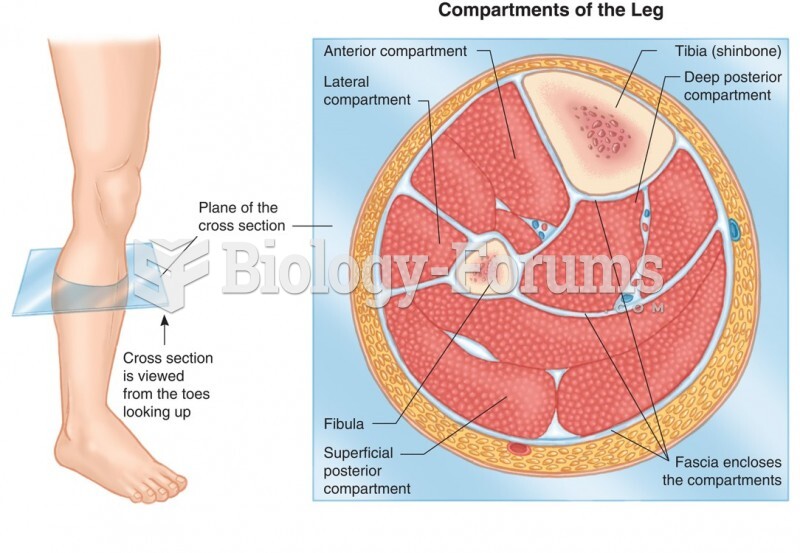|
|
|
By definition, when a medication is administered intravenously, its bioavailability is 100%.
In the ancient and medieval periods, dysentery killed about ? of all babies before they reach 12 months of age. The disease was transferred through contaminated drinking water, because there was no way to adequately dispose of sewage, which contaminated the water.
Eating carrots will improve your eyesight. Carrots are high in vitamin A (retinol), which is essential for good vision. It can also be found in milk, cheese, egg yolks, and liver.
No drugs are available to relieve parathyroid disease. Parathyroid disease is caused by a parathyroid tumor, and it needs to be removed by surgery.
People with high total cholesterol have about two times the risk for heart disease as people with ideal levels.
 Significant hash can be caused by faults in one or more cylinders, whereas amplified hash is not ...
Significant hash can be caused by faults in one or more cylinders, whereas amplified hash is not ...
 Structural MRIs reveal thinning of sensorimotor cortex in children with Tourette syndrome. Red and ...
Structural MRIs reveal thinning of sensorimotor cortex in children with Tourette syndrome. Red and ...





